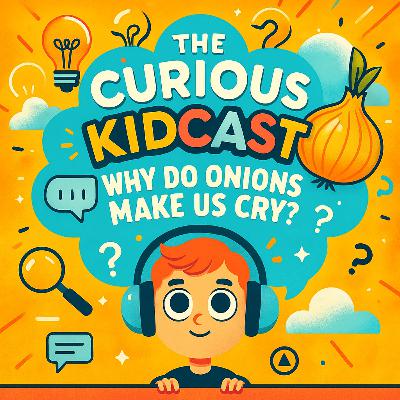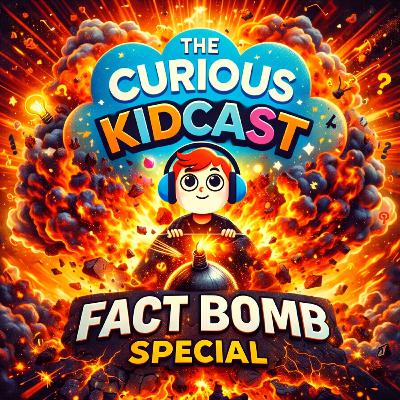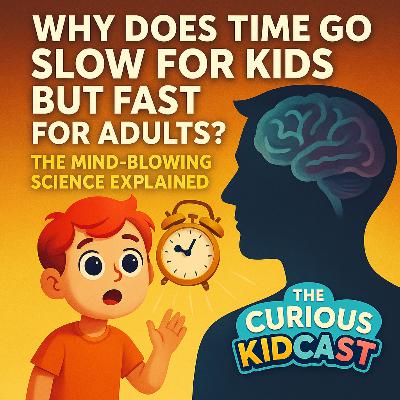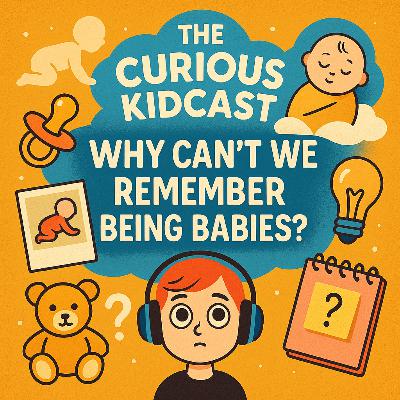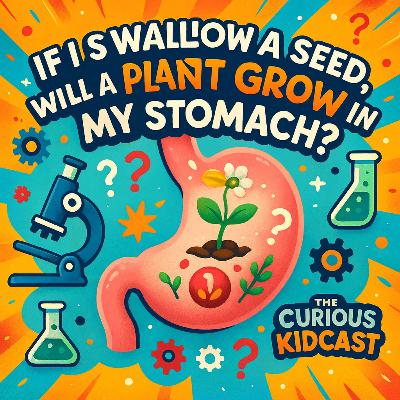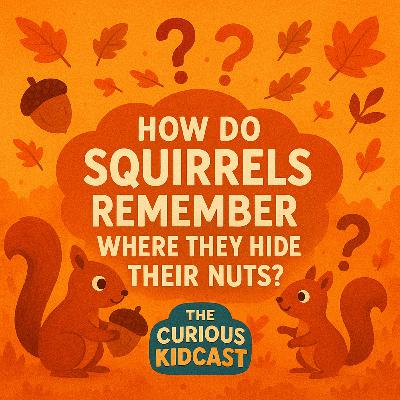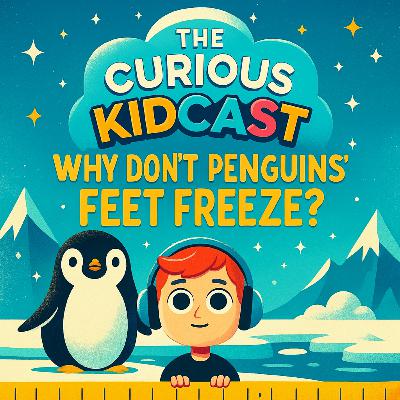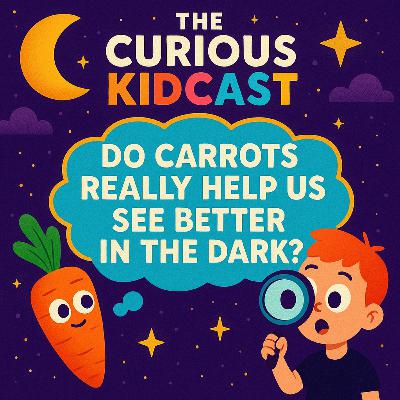Why Do Onions Make Us Cry? | Amazing Facts for Children
Description
Join Andy on The Curious Kidcast as we explore the fascinating science behind why onions make us cry! This fun, educational podcast episode takes kids on an exciting journey through chemistry, plant biology, and kitchen science.
Perfect for curious kids, homeschooling families, and anyone who loves learning about nature and science through entertaining stories and facts. Discover the amazing chemical reactions happening in your kitchen and learn clever tricks to stop those onion tears.
What Kids Will Learn
- The chemistry behind onion tears and how plant defenses work in nature
- Why our eyes produce tears as a natural defense mechanism
- 5 proven methods to stop crying when chopping onions
- Fascinating facts about onions from ancient Egypt to modern science
- How scientists created tearless onions using plant breeding
Educational Topics Covered
- Chemistry for Kids: Simple explanations of chemical reactions, enzymes, and acids
- Biology & Nature: Plant defense mechanisms and how organisms protect themselves
- Food Science: Understanding what happens when we prepare and cook food
- History: Ancient civilizations and their relationship with onions
- Critical Thinking: Science experiments and observation skills
Fun Facts Featured in This Episode
- Ancient Egyptians buried onions with mummies as symbols of eternal life
- Greek athletes ate onions before competitions thinking it made them stronger
- The tear-causing gas is called syn-propanethial-S-oxide
- Scientists in Japan created a "Smiley Onion" that doesn't make you cry
- Onion skins can be used to make natural dye for crafts
- Onions have been eaten by humans for over 5,000 years
Perfect For
- Homeschool science curriculum and STEM learning activities
- Curious kids who love asking "why" questions about nature
- Family listening during car rides or meal preparation
- Classroom science lessons for elementary students
- Parents looking for educational entertainment for children
- Kids interested in cooking, chemistry, and how things work
Quiz Questions
The episode features an interactive quiz to test kids' knowledge and reinforce learning:
- What enzyme starts the onion's chemical reaction?
- Why did ancient Egyptians bury onions with mummies?
- What is the tearless onion called?
Share Your Questions!
Does your child have a curious question about science, nature, or how the world works?
Visit curiouskidcast.com to submit their question for a future episode!
Why Parents and Teachers Love This Podcast
- Makes complex science concepts fun and accessible for kids
- Encourages curiosity and critical thinking skills
- Screen-free educational entertainment for families
- Supports homeschool and classroom learning objectives
- Age-appropriate humor that keeps kids engaged
- Real science facts backed by research
- Inspires hands-on experiments and family activities
Related Learning Topics
If your kids enjoyed this episode about kitchen chemistry, they might also be curious about:
- Why peppers taste spicy
- How taste buds work
- Why different foods have different smells
- Plant biology and how vegetables grow
- Other chemical reactions in everyday life
Tags:
kids science
educational podcast
homeschool resources
chemistry for children
nature education
family learning
fun facts
STEM education
parenting resources
curious kids
food science
science experiments
Subscribe to The Curious Kidcast
Never miss an episode! Subscribe now and join thousands of curious families learning together.
New episodes answer real questions from real kids about science, nature, and the fascinating world around us.
About The Curious Kidcast
The Curious Kidcast is an educational science podcast for kids aged 7-11, hosted by Andy. Each episode explores fascinating questions about nature, science, and how the world works, making learning fun and accessible for curious young minds. Perfect for homeschool families, classroom use, or quality family listening time.
Educational, entertaining, and always curious - that's The Curious Kidcast way!

